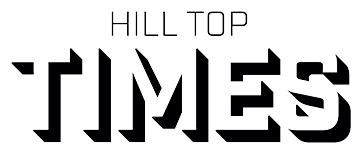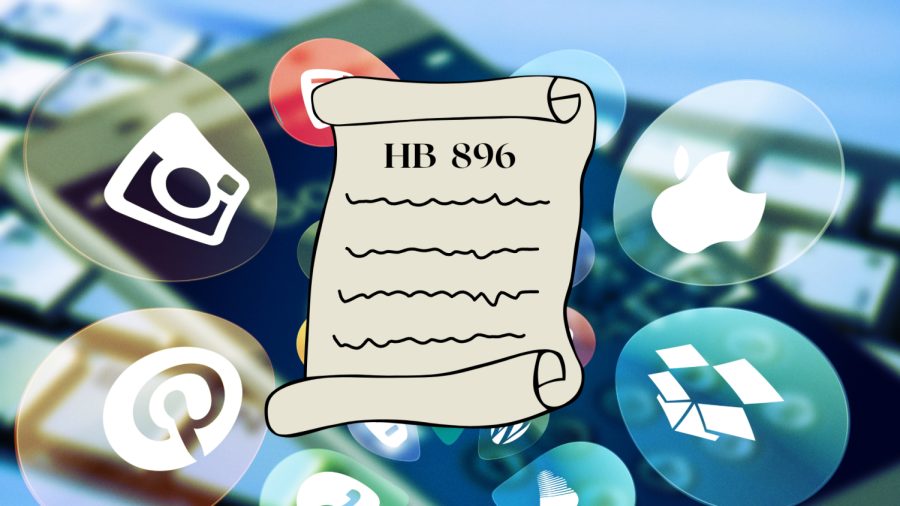State representative files bill to ban social media for minors
A graphic representing HB 896, a bill regarding social media.
December 16, 2022
On Dec. 7, Republican State Rep. Jared Patterson filed HB 896, a bill that would ban social media for children under 18 years old.
To verify a user’s age, the bill requires the user to provide a picture of their driver’s license, as well as a picture of the user with their driver’s license. The social media company would then be forced to delete any personal information provided in the photos. Additionally, parents would be able to request the removal of their child’s account if they’re a minor.
In a statement, Patterson notes the link between increased social media use and increased self-harm and suicide rates.
“Social media is the pre-1964 cigarette,” Rep. Patterson said. “Once thought to be perfectly safe for users, social media access to minors has led to remarkable rises in self-harm, suicide, and mental health issues. The Texas legislature must act this session to protect children because, thus far, the social media platforms have failed to do so.”
In accordance with COPPA (Children’s Online Privacy Protection Rule), apps such as Instagram and Tiktok do have a minimum age requirement of 13, however, there is no enforcement or verification.
“I think the minimum age to have social media should be around the age of fourteen and fifteen,” sophomore Shruti Malasala said. “This is because teens enter high school and can truly learn ways to safely use social media and learn what is healthy and unhealthy while spending their time on social media platforms.”
A report by Common Sense Media finds that over 80% of teenagers use social media.
“The harms social media poses to minors are demonstrable not just in the internal research from the very social media companies that create these addictive products, but in the skyrocketing depression, anxiety, and even suicide rates we are seeing afflict children,” Texas Public Policy Foundation CEO Greg Sindelar said in a statement. “We are tremendously grateful for Rep. Jared Patterson’s leadership on keeping this precious population safe, and [Texas Public Policy Foundation] is fully supportive of prohibiting social media access to minors to prevent the perpetual harms of social media from devastating the next generation of Texans.”
Some students are not in support of the bill because of social media’s benefits in other areas.
“I feel like social media is seen as a platform that can negatively impact teens’ lives but there are also many benefits that even bring out maturity in teens,” Malasala said. “Some examples include staying informed on national or international news, learning and educating themselves about just anything they want, learning about different cultures around the world, and overall being exposed to the real world.”
However, the negative impacts of social media remain undeniable.
“One way social media has negatively impacted me is by comparing myself to others and setting high standards that are unlikely to meet for myself,” Malasala said. “It’s not only appearance but also setting high standards regarding my academic performance and comparing myself to other individuals who seem to be accomplishing a lot more than I am at the same age.”
HB 896 is not the only recent legislative push against social media. Last Wednesday, Gov. Greg Abbott banned Tiktok from all state-issued devices due to the claim that China is using the app to track U.S. users’ information.
“TikTok harvests vast amounts of data from its users’ devices–including when, where and how they conduct internet activity–and offers this trove of potentially sensitive information to the Chinese government,” Abbott said in a letter to Lt. Gov. Dan Patrick and Speaker Dade Phelan.
The next legislative session will be held on Jan. 10, 2023, and will decide whether or not HB 896 will be passed. If passed, the act would take full effect starting Jan. 1, 2024.








